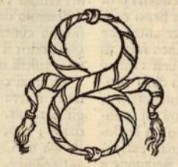Ludwig of Taranto
Ludwig von Taranto (Italian: Luigi di Taranto ; * 1320 ; † May 26, 1362 in Naples ) from the older house of Anjou was Prince of Taranto (1346-1362), King and Co-King of Naples (1352-1362) and Count of Provence ( iure uxoris ).
Life
Ludwig was the second son of Prince Philip I of Taranto and his second wife Katharina von Valois-Courtenay . After his older brother Robert was made titular emperor of Constantinople in 1346 , Ludwig received the principality of Taranto from him. Ludwig gained dominant influence over his cousin Queen Joan I of Naples and was most likely involved in the murder of her first husband, Andrew of Hungary . At the instigation of his ambitious mother, Ludwig himself married Johanna on September 3, 1347. In the same year, King Ludwig I of Hungary appeared in southern Italy to avenge his brother's death. Ludwig opposed him at Benevento , but was beaten, whereupon he and his wife fled to Provence . There they were able to convince the Pope of their innocence in the murder of Andrew of Hungary and returned to Naples in the summer of the same year.
Louis was crowned King of Sicily (the official title of King of Naples) at the instigation of Johannas in 1351 and was appointed co-regent . The coronation was not until May 25-27, 1452 by Pope Clement VI. , the supreme liege lord of the Kingdom of Naples. On Pentecost of the same year (May 28), Ludwig ordered a festival in memory of his coronation. That same day he founded the Knot's Order and Company .
Louis of Taranto was the only one of the queen's four husbands who was also crowned co-king, and as a result he and his close follower Niccolò Acciaiuoli dominated the kingdom's politics. Ludwig's most ambitious goal was the conquest of the island of Sicily , which had been lost to the house of Anjou in the so-called Sicilian Vespers in 1282 . In 1354 he conquered Palermo and in 1356 Messina . The war swallowed up the entire state assets, so that Ludwig and his wife were excommunicated by the Pope in 1355 because they were no longer able to make the payments due to their liege lords. The order disintegrated in their kingdom through countless mercenary bands who plundered the country and through a feud against their cousins from the Anjou-Durazzo line. In Sicily, the situation turned against Ludwig and Johanna, after King Friedrich III there. went on the offensive with the help of Aragón , triumphing at Acireale in 1357 and retaking Messina in 1361.
Ludwig von Taranto died on May 26, 1362 and was buried in the Abbey of Montevergine near Avellino . His contemporaries regarded him as vain and mentally limited. His policy was largely determined by Niccolo Acciaiuoli, who finally collapsed with his death in 1365. Ludwig had two daughters from his marriage to Johanna, but they died shortly after their birth.
literature
- Angelo Di Costanzo: Raccolta di tutti i più rinomati scrittori dell'istoria generale del Regno di Napoli . Tomo I. Giovanni Gravier, Naples 1769 ( full text in the Google book search).
- Richard Emmerson: Key Figures in Medieval Europe: An Encyclopedia . Routledge, New York, London 2013, ISBN 1-136-77519-6 ( full text in Google Book Search).
- Theo Kölzer: Ludwig of Tarent . In: Lexicon of the Middle Ages (LexMA). Volume 5, Artemis & Winkler, Munich / Zurich 1991, ISBN 3-7608-8905-0 , Sp. 2199.
- Andreas Kiesewetter: Luigi d'Angiò (d'Angiò-Taranto), re di Sicilia. In: Mario Caravale (ed.): Dizionario Biografico degli Italiani (DBI). Volume 66: Lorenzetto – Macchetti. Istituto della Enciclopedia Italiana, Rome 2006.
Web links
- Ludwig von Anjou, Prince of Taranto. Middle Ages genealogy. Manfred-hiebl.de, accessed on June 15, 2020 .
- Louis, King of Naples. Encyclopædia Britannica. Britannica.com, accessed June 15, 2020 .
Individual evidence
- ^ Richard Emmerson: Key Figures in Medieval Europe, p. 375
- ↑ Angelo Di Costanzo: Raccolta di tutti i più rinomati scrittori dell'istoria generale del Regno di Napoli, p. 224
| predecessor | Office | successor |
|---|---|---|
| Robert |
Prince of Taranto 1346-1362 |
Philip II |
| Andrew of Hungary |
Co-king of Naples 1352-1362 |
Jacob IV of Mallorca |
| personal data | |
|---|---|
| SURNAME | Ludwig of Taranto |
| BRIEF DESCRIPTION | Prince of Taranto and King of Naples |
| DATE OF BIRTH | 1320 |
| DATE OF DEATH | May 26, 1362 |
| Place of death | Naples |


